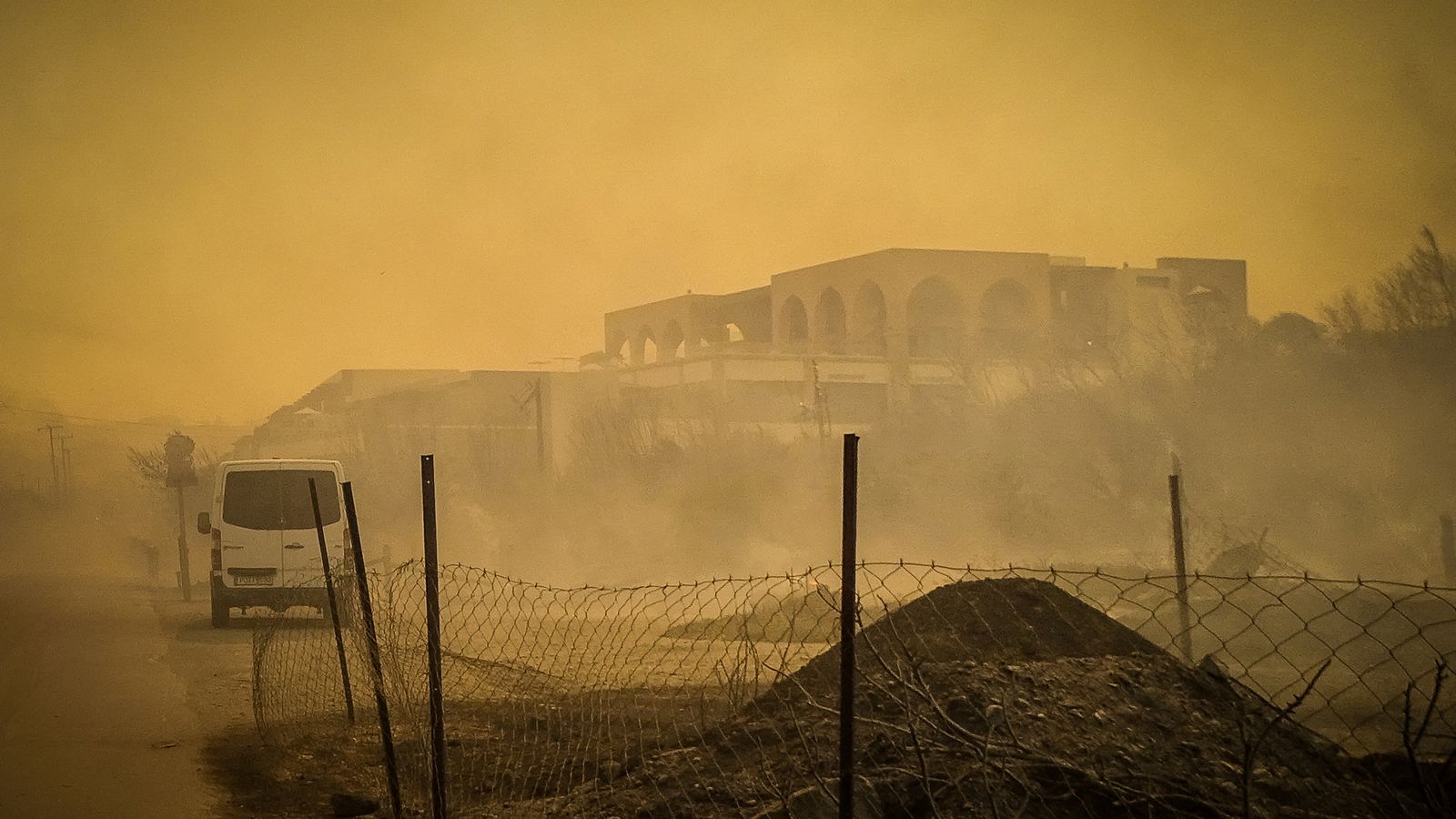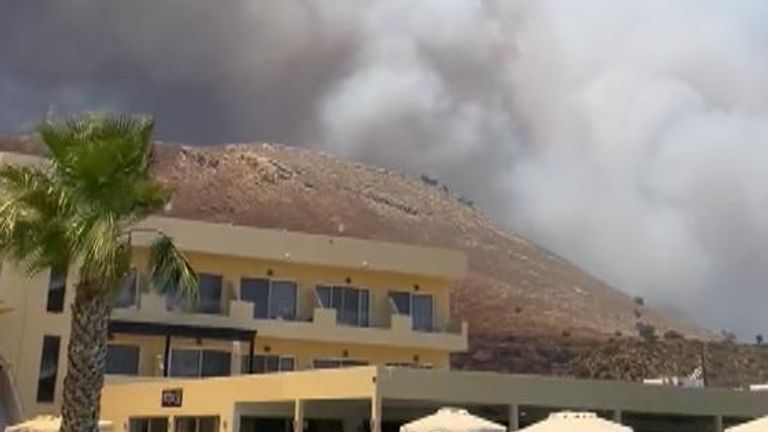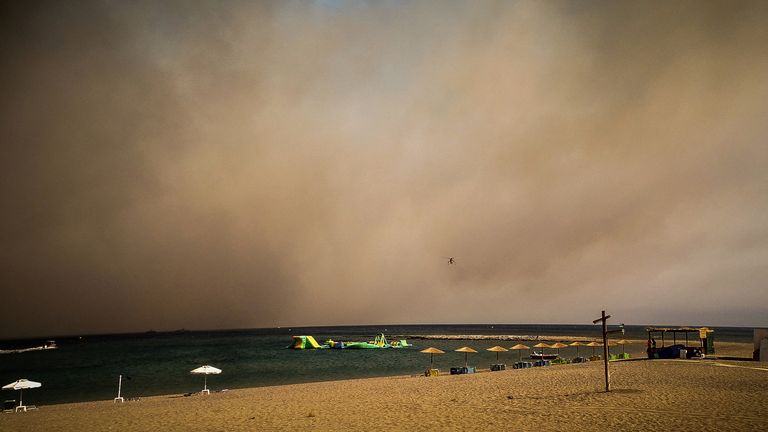Raging wildfires on the Greek island of Rhodes have sparked the evacuation of around 2,000 tourists from its resorts.
The Greek government said it had evacuated 19,000 people in the “largest ever” wildfire evacuation in the country’s history.
Local media said the fires had reached three hotels, which had already been evacuated, with three coastguard vessels plus one from the army evacuating people from two beaches.
But what should holidaymakers do if they have booked to travel to the island?
Are airlines still flying to Rhodes?
Jet2 cancelled all flights and holidays due to depart to Rhodes on Sunday, saying customers will be “provided with a full refund and the opportunity to rebook”.
TUI also cancelled all flights to the island until Tuesday, with customers looking to fly out on Wednesday given the opportunity to rebook or cancel free of charge.
Meanwhile British Airways said it is offering customers on the island who need to return home early the opportunity to change flights free of charge.
Read more:
Wildfires force thousands of holidaymakers to flee their hotels
If I’m with another operator can I cancel my holiday and get a refund?
For the moment, probably not. It all depends on the advice from the foreign office.
They have urged British travellers affected by the wildfires to follow guidance from Greek emergency services.
“If you are planning to travel to Rhodes, please check with your travel operator or hotel prior to travel that the area you plan to visit is not impacted by the current wildfires,” it said.
However, they have stopped short of advising against travelling to Rhodes – only that would give people the right to cancel or change any plans and expect a refund.
However, the fine print of holiday conditions will differ with each operator.
Am I covered by my travel insurance?
Holidaymakers will not be guaranteed compensation under some travel insurance policies unless the UK government advises against travel to the area.
“The primary purpose of travel insurance is to cover the costs of emergency medical treatments or repatriation should the worst happen, which can run into the tens or even hundreds of thousands of pounds,” a spokesperson for the Association of British Insurers (ABI) said.
“It can cover you if you need to cancel or cut short your holiday, but it’s likely this will only be under limited circumstances, for example if you or a close family member fall ill, not because of a disinclination to travel.
“Insurance can cover you if advice from the government changes since you’ve booked your trip, and it’s no longer considered safe to travel to the destination.”
Instead, anyone concerned about travelling to the area should check with their travel provider and air carrier, the spokesperson added.
Some travel insurance policies may cover affected holidays under circumstances, so people are advised to check the scope of cover provided by their travel insurance.
However, it may be possible to cancel and get some money back, or rearrange bookings for a fee, if you contact the airline or travel company with enough notice, according to Citizens’ Advice.




